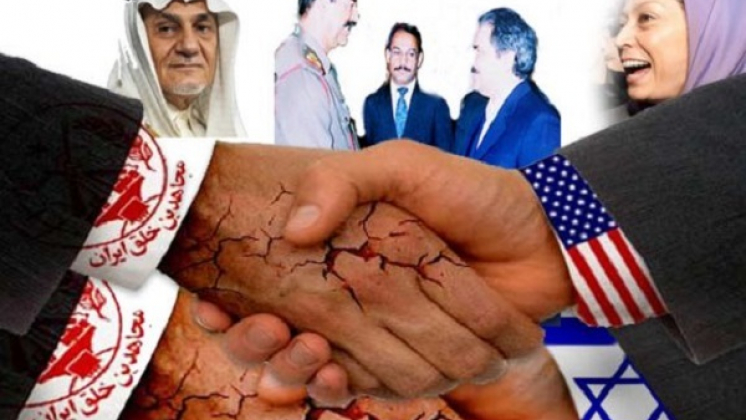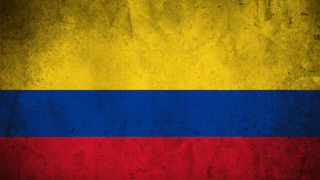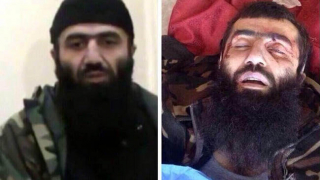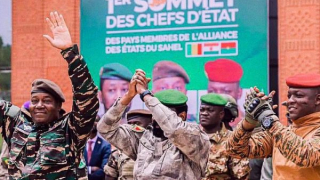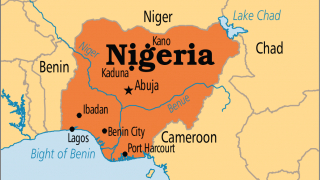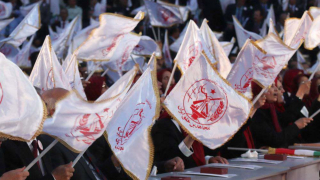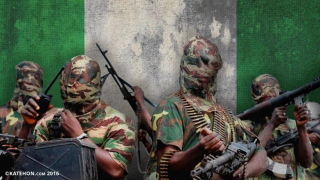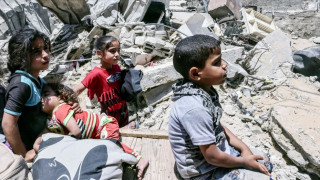The American mainstream media suppresses the assassination of six US advisors by the Mojahedin-e Khalq (MEK)
American media always try to move in line with current American policies. Maintaining the hegemony and strong image that exists in the world from America is always the responsibility of the media of this country. Therefore, regarding the US foreign policy on a shallow and unimportant issue of the Mojahedin-e Khalq, these media are supposed to move in the same direction and follow the strategies of the American foreign policymakers.
The authoritative and anti-democracy approach of American politicians toward Iran after the victory of the Islamic Revolution, and the foundation of the Islamic Republic of Iran, has shown that US officials seek to undermine Islamic Iran and its people in every possible way. Therefore, the United States policy regarding the remnants of the Pahlavi regime and the opposition groups of the Islamic Republic, such as the Mojahedin-e Khalq and the Rajavi cult, is to support these groups and attack Iran and Iranians who want to maintain their independence under any circumstances. American politicians took this strategy when they realized they could no longer dominate Islamic Iran as they did during the Pahlavi regime. Therefore, in an attempt to harm the people of Iran, they allied with US enemies and used them in line with their policies.
The way the US officials dealt with the MEK since its foundation is worth considering. The anti-imperialist and anti-American stance of the Mojahedin-e-Khalq was the most fundamental principle of its manifesto and one of the main reasons for its existence since the foundation of this group. The anti-imperialist approach of the MEK, if not more important and prominent than Islamism, at least seemed to have equal weight. The Mojahedin announced in a statement entitled “Staged expectations from the Islamic Republic” that: “our least expectations from the Islamic Republic can be summarized in the comprehensive eradication of the imperialists’ control from this country. Aren’t the imperialists the incarnated international devils of today’s world? Therefore, the primary principles of an organization which is based on the ideology of Islam and the worldview of monotheism are precisely associated with the comprehensive rejection of the political, economic, military, and cultural effects of global imperialism led by the USA.”
This attitude toward imperialism by the leaders of the MEK turned the group into one of the primary enemies of the United States, and the Mojahedin-e-Khalq added the assassination of American citizens in Iran to its agenda. The first American citizen who was on the terror list of the MEK was Colonel Lewis Hawkins, the American military adviser in Iran. Hawkins was assassinated on June 3, 1973, in Tehran. Two days later, on the 10th anniversary of the uprising of people on June 5, 1963, the Mojahedin-e-Khalq issued a declaration and took responsibility for this assassination. It stated in this declaration, “This execution was a small response to the river of blood that Shah’s barbarous murderers shed on the ground from the bodies of the youth of Iran in Tehran, Ahvaz, and Sanandaj by order of their American masters. It was a response to the red blood sprinkled on the streets on the bloody fifth of June. It is a response to the presence of ten thousand American and English advisers in Iran. As we prepare for the battle against imperialism, and above all US imperialism, we will not sit still toward the increasing crimes of the government.” Richard Holmes, the then US ambassador to Iran, called this assassination “a senseless crime.”
It was not the last assassination of American advisors. Two years later, on May 21, 1975, Colonel Paul R. Shaffer and Lieutenant Colonel Jack H. Turner, American citizens in Iran, were also assassinated by members of the MEK. The Mojahedin-e-Khalq called this assassination a response to the execution of 9 political prisoners in Evin prison. It is stated in the book “Mojahedin-e-Khalq from Foundation to the End” that: “Shortly after this successful operation, an unknown woman (probably Manijeh Ashrafzadeh Kermani) as the spokesperson of the Mojahedin-e-Khalq called the office of the Associated Press in Tehran and announced that the execution of two of the mentioned advisors was a response to the killing of 9 political prisoners by the police last month.”
However, the third assassination was a little different from the previous ones. Unlike previous assassinations, the Mojahedin-e-Khalq did not target American militaries; in this assassination, which took place on 28th of August 1976, in Vosuq Square, Tehranno, three American employees of Rockwell International Company, were shot. William C. Cottrell Jr, Robert R. Krongard, and Donald G. Smith were shot dead by Mohsen Tarighat and Mehdi Fathi, members of the Mojahedin-e-Khalq.
These were assassinations that the MEK carried out successfully against American citizens in Iran. Several other assassinations operated against US militaries and civilians in Iran, which failed, and the subjects of the assassination survived.
None of the leaders of the Islamic Revolution of Iran approved these assassinations, and even Imam Khomeini repeatedly prohibited the Mojahedin-e-Khalq from armed operations, but curiously enough, Mike Pompeo “deeply appreciated all the activities” of this group during his visit to Ashraf3!
These assassinations led the United States to put the Mojahedin-e-Khalq on the list of foreign terrorist organizations (FTO). However, the policies of the United States in dealing with this group have changed over the years, and the US needed to exploit the power and capacity of the MEK to undermine the Islamic Republic of Iran. Therefore, after spending many dollars, the leaders of the MEK managed to remove the name of the Mojahedin-e-Khalq from the list of terrorist organizations.
Moreover, the strategy of the mainstream US media, which is responsible for the ideological channelizing and organizing the American media while having a vast audience all over the world, has been associated with the foreign policies of the United States, and even though maintaining the firmness of US forces has been considered the primary foreign policy of the United States, and these assassinations had crossed the red line of the American governments in all eras, the US media covered them up and did not allow the publication and retelling of the events that led to the assassination of these six advisers.
Suppressing these assassinations by the media shows that the US government, and its affiliated media, are trying to use this issue whenever and wherever necessary to cause harm to the people of Islamic Iran.
The People’s Mojahedin of Iran (PMOI), mostly known as MKO (Mojāhedin-e Khalq Organization), was a paramilitary group founded in 1965 in Iran. After the overthrow of Mohammadreza Pahlavi and the victory of the Islamic Revolution in 1979, this group, claiming to be the main element in achieving the Islamic Revolution, started to stir up hostility towards the new Islamic government of Iran. In 1981, the MEK declared an armed revolt against the Islamic Republic of Iran. Carrying out several terrorist operations on large and small scales, the group made more than 17,000 martyrs of Iranians. The two most important operations of MEK were the bombing of the prime minister’s office and headquarters of the Islamic Republic Party (IRP) of Iran, which caused the martyrdom of the president, prime minister, head of the Supreme Court of the Islamic Republic of Iran and more than seventy leading officials of Iran. After absconding from Iran, the Mojahedin-e-Khalq relocated to Iraq, and Saddam Hussein, the dictator of Iraq, welcomed it into the bosom of his country. There, they took up weapons against their own country and participated in two operations against the Islamic Republic of Iran.
In early 1988, Iran and Iraq accepted a cease-fire agreement under the terms of UN Resolution 598. However, under the delusion that they could conquer Tehran in a few days, the MEK, with the support of Saddam Hussein’s army, attacked Iran and crossed the borders, committing ferociously and ruthless felonies like hanging and burning innocent people. Though pretending to be the claimant of human rights and the legitimate alternative to the Islamic Republic of Iran, the MEK today is doing its best to slam the Islamic Republic of Iran.
After about 25 years of residing in Iraq and following the overthrow of the Baathist regime of Saddam Hussein, the MEK was expelled from this country and resettled in Albania with the financial support of some Arab countries and the direct support of the United States.

